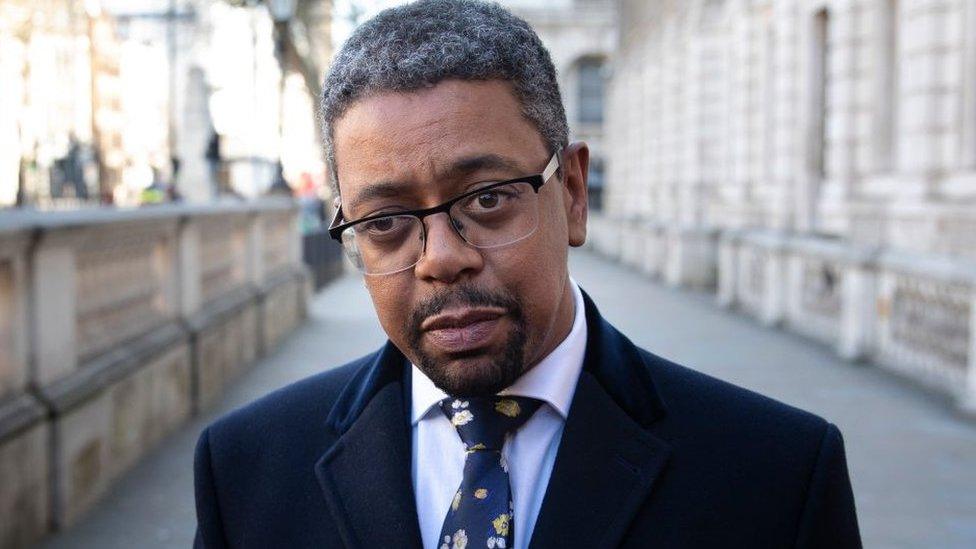Covid not top Wales priority in early 2020, inquiry told
- Published
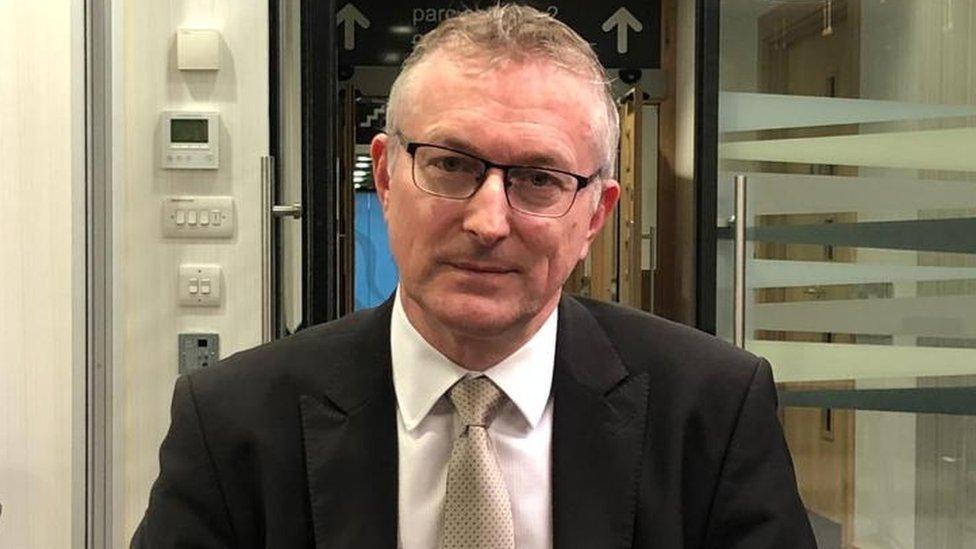
Dr Andrew Goodall who was NHS Wales chief executive during the pandemic, says in hindsight preparatory action should have been taken sooner to prepare for its impact
Covid was not a top priority for the Welsh government in January and February 2020, the Covid inquiry has heard.
Andrew Goodall, who was NHS Wales chief executive during the pandemic, said there was a change in response in the last week of February and early March.
He said the first confirmed case of Covid in Wales acted as the "trigger" for stepping up the response.
The comments came on the sixth day of the UK inquiry's Welsh module.
Wales' first confirmed case of Covid was 28 February and the first death was recorded on 15 March.
Dr Goodall told the inquiry that in hindsight action should have been taken sooner to prepare the NHS for the full impact of the virus.
"Prior to Wales' first case on 28 February, the NHS was relying on worse case scenario modelling and previous experiences, such as the swine flu pandemic in 2009.
"The reasonable worst case scenarios, there's a danger of seeing them as the forecast, that they are likely and they will happen.
"In fact, our swine flu experience told us different, our reflections after that event was we couldn't rely on our reasonable worst case scenarios," he said.
He also said he was not invited to meetings of Cobra - the government's emergencies committee - in the first two months of the year, saying he "wasn't directly invited".
It was up to the minister or first minister who would accompany them, and there was a constraint on "attendance numbers" which meant he was not able to go.
He added that sending Covid patients to care homes could have been done differently.
"It was about creating capacity in hospitals and there was some expectation that care homes could operate isolation procedures and provide a safer environment," he said,.
His worries were that hospitals were areas where patients were likely to be exposed to Covid, so there was something about trying to "find the safest environment for people in our system".
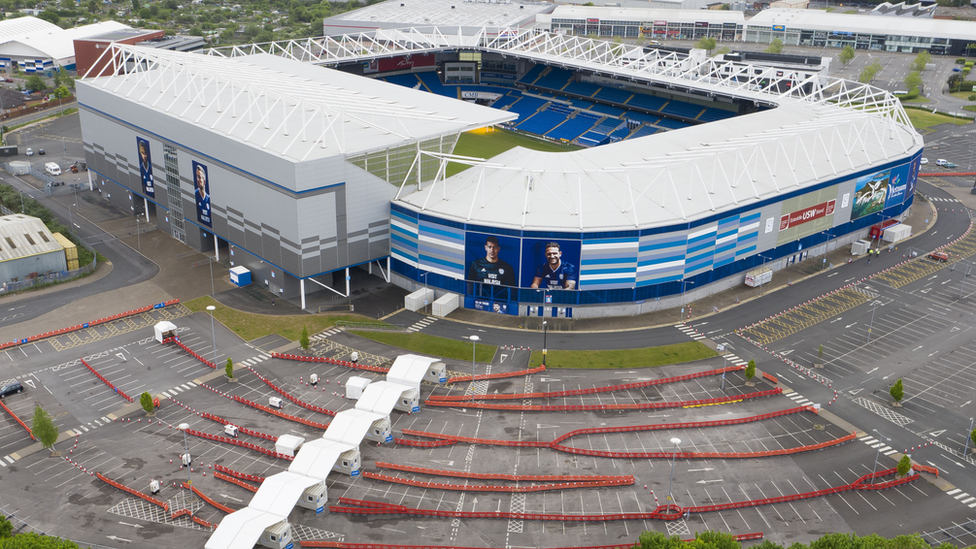
The UK government commissioned a mass Covid testing centre at Cardiff City Stadium, without telling the Welsh government or Public Health Wales, the inquiry heard that t
Tracey Cooper, the chief executive of Public Health Wales (PHW), said it and the Welsh government did not have any idea about a mass Covid test centre set up in Cardiff during the pandemic.
She said on about 1 April 2020, Deloitte, a private firm, informed PHW that it had set up the centre at Cardiff City Stadium after being told to do so by the UK government.
"Unfortunately, neither ourselves or Welsh government knew about that, I don't know who made the decision," she said.
'Scale of the threat'
She added that over the course of "four or five days" PHW went from being unaware of the site's existence to staffing and running it.
"The reason being it was there and we couldn't not use it, but it hadn't been planned."
She told the inquiry about the first discussion about Covid she had with Wales' chief medical officer, Frank Atherton, on 27 February 2020.
She said she spoke about the situation in Italy and both realised the scale of the threat the virus would soon pose in Wales, and described the conversation as "sobering" and suggested others found it difficult to "tangibly recognise what was coming".
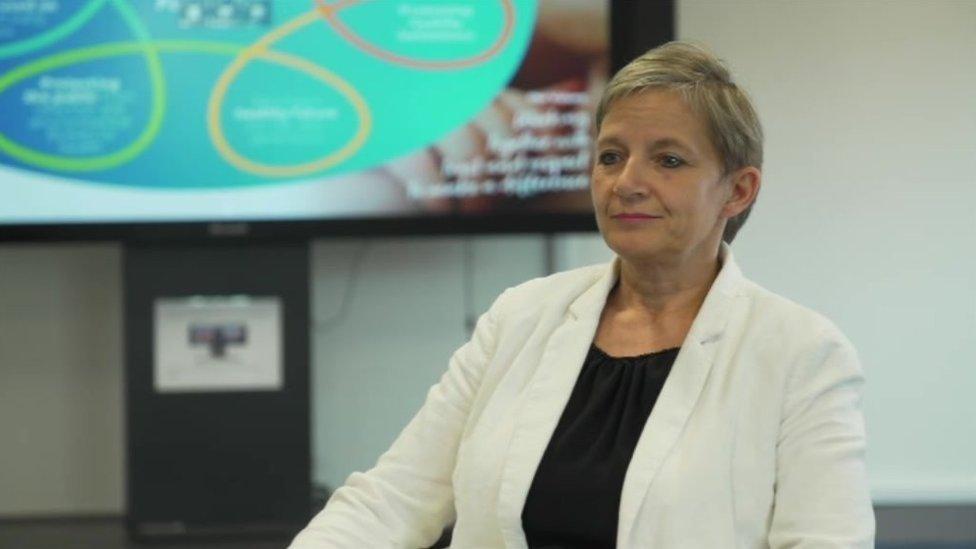
In May 2020, Dr Tracey Cooper said she was "not familiar" with the Welsh government's then-target of 9,000 Covid tests a day
She added that they had prepared for a much shorter pandemic, and the scaling up of pandemic resources did not happen early on as nobody expected it to last as long as it did.
"Dr Goodall mentioned earlier that he thought it might be initially a 13-week epidemic but of course by the time we got into [cases] heading up again by the middle of the year, that was the tipping point," she said
"Towards the end of August we saw rates really kicking up again… then it was clear this was going to be a rolling pandemic."
Ms Cooper read back a letter she wrote in March 2020 in which she said there was "no value" in testing care home residents if they did not have Covid symptoms.
PHW later changed its policy in light of new evidence on asymptomatic transmission.
"At that point the case definition didn't include residents in care homes, other than people who were symptomatic, the testing world was in different space.
"If someone had a negative test, it didn't mean they weren't incubating Covid, the world changed significantly as we went into April and May," she said.
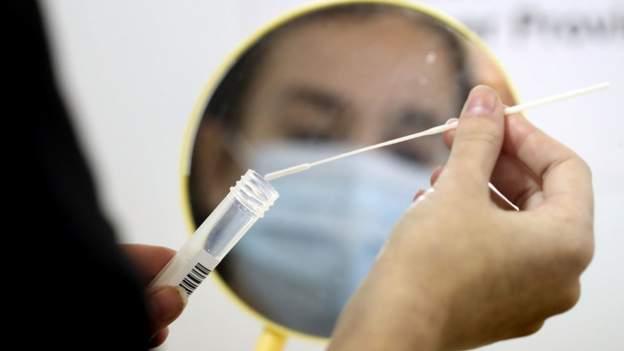
Public Health Wales changed its policy on testing care home residents if they did not have Covid symptoms
On Monday, the inquest heard that Jane Runeckles, First Minister Mark Drakeford's special adviser, switched on WhatsApp's auto-delete function in November 2021.
The Mr Drakeford has repeatedly refused to answer questions in the Senedd on Tuesday about his use of WhatsApp during Covid, saying he will not offer a "preview" of the answers he will give the inquiry.
The inquiry has heard claims that Mr Drakeford regularly used the app. However, he previously said he used it "very little".

INSEPARABLE SISTERS: The seven-year-old conjoined twins who defied all odds
JUNE: VOICE OF A SILENT TWIN: The tragic story of June, her sister and their life in Broadmoor

- Published4 March 2024
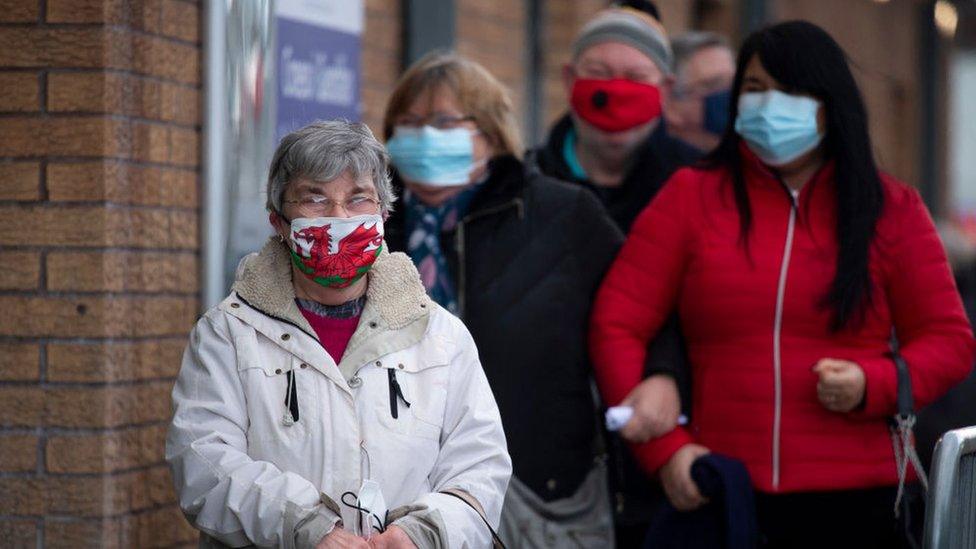
- Published2 March 2024
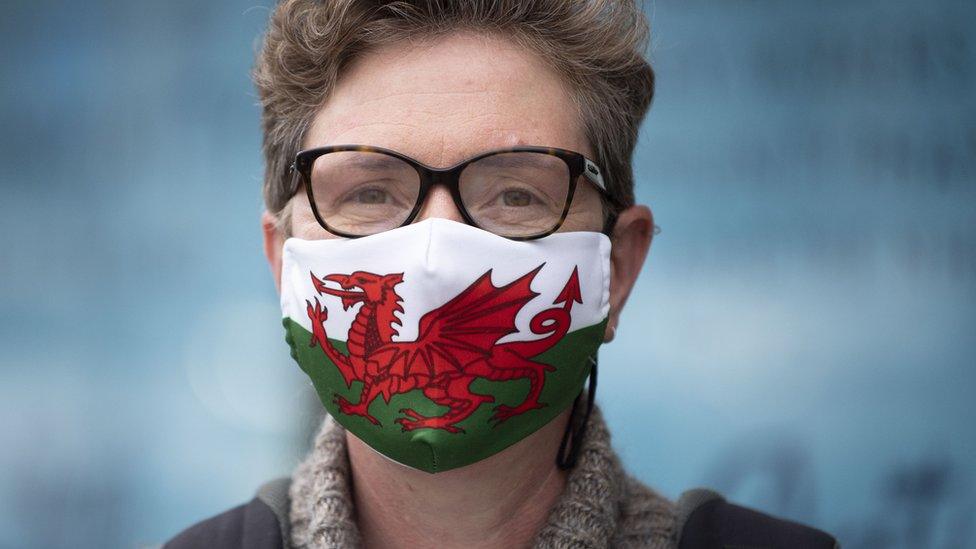
- Published1 March 2024
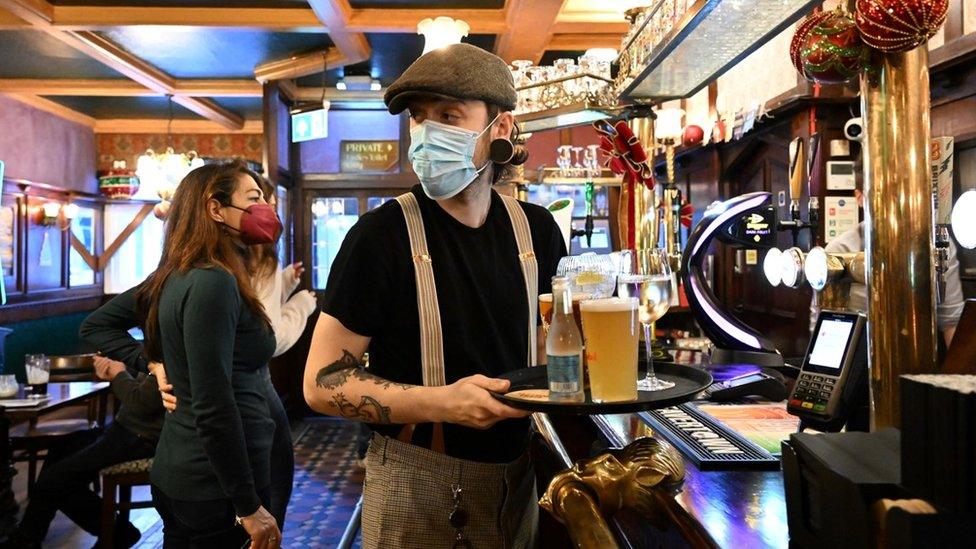
- Published29 February 2024

- Published28 February 2024
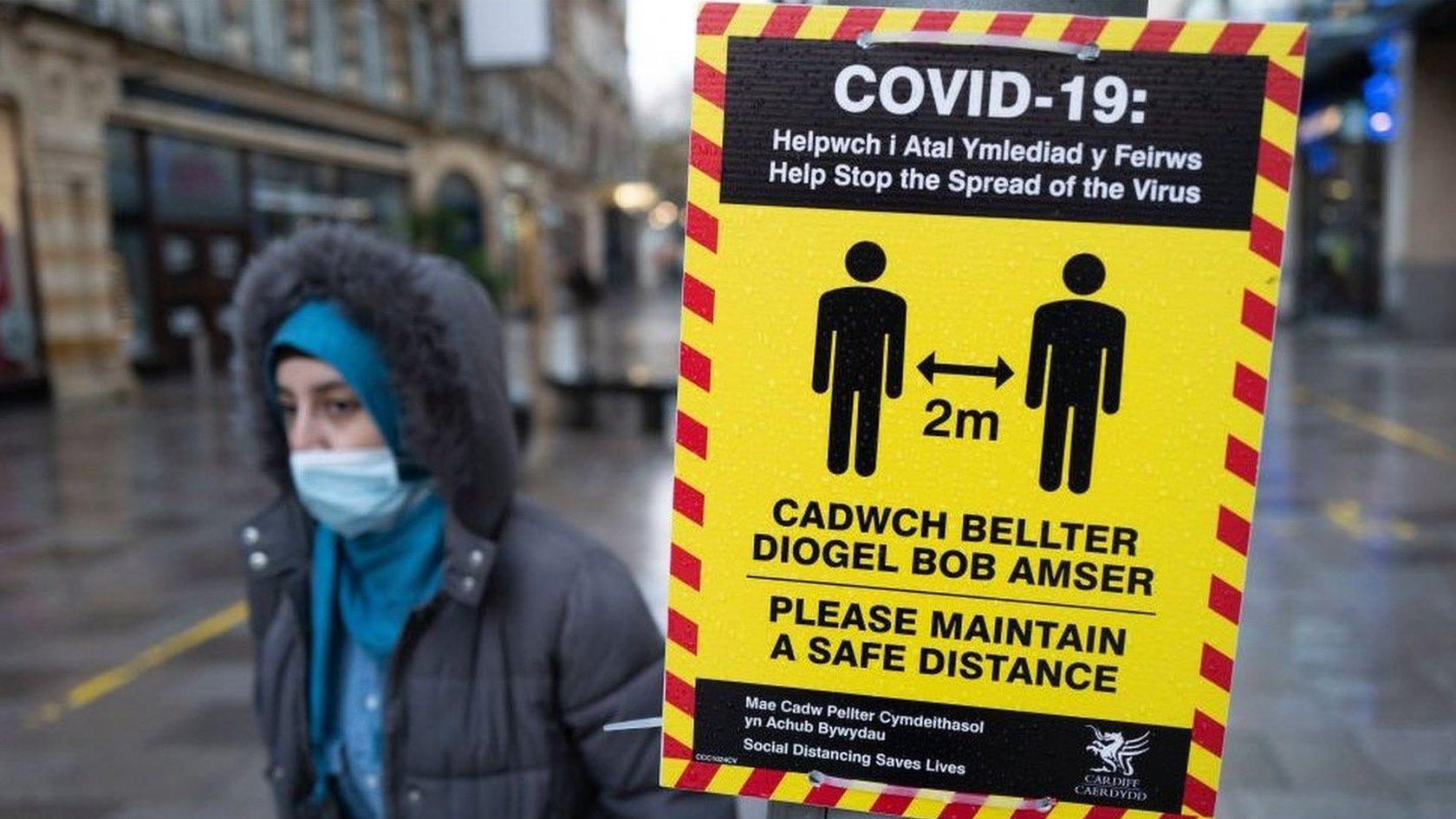
- Published27 February 2024
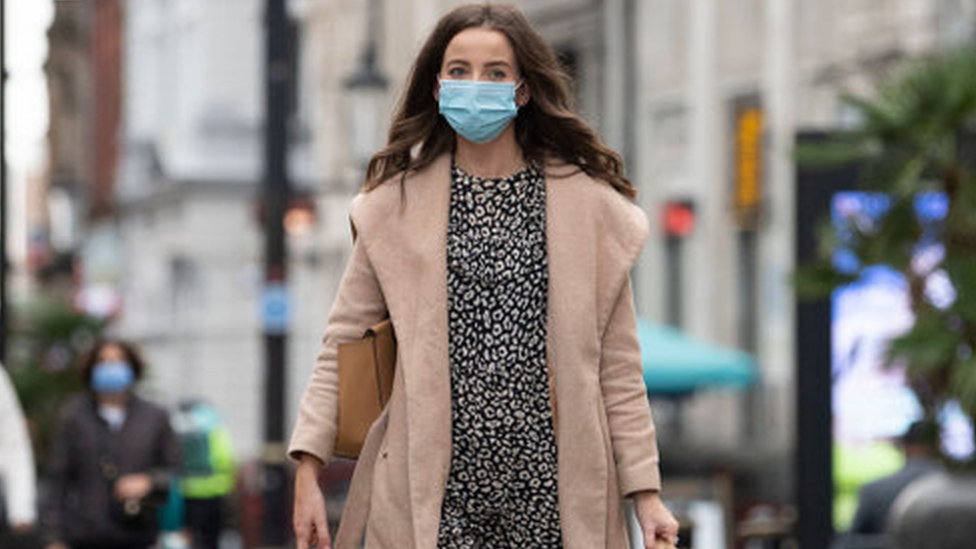
- Published27 February 2024
